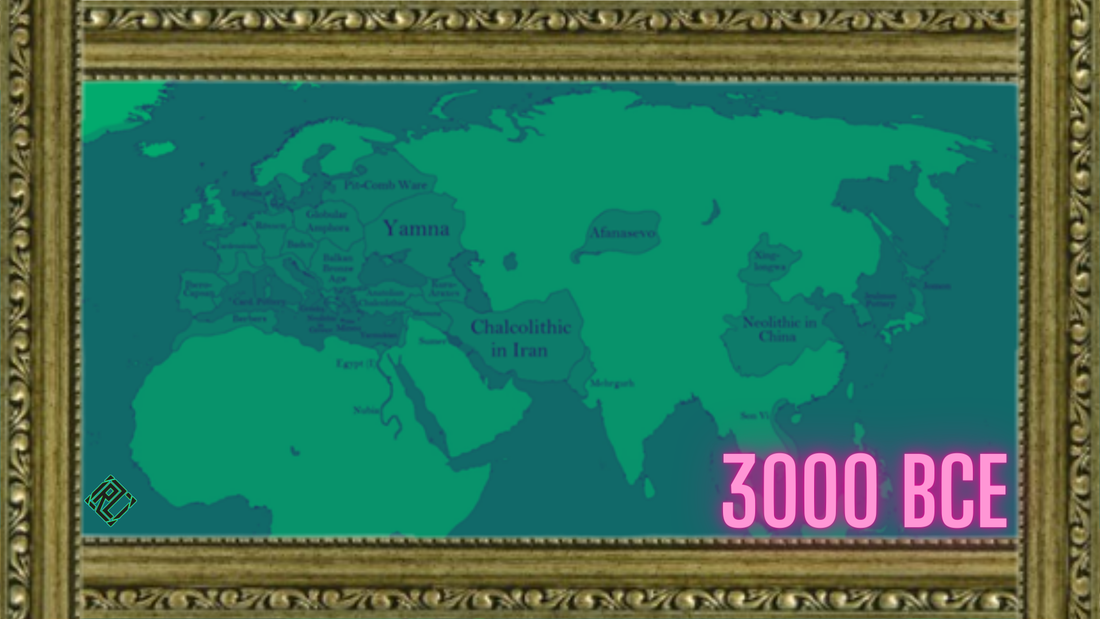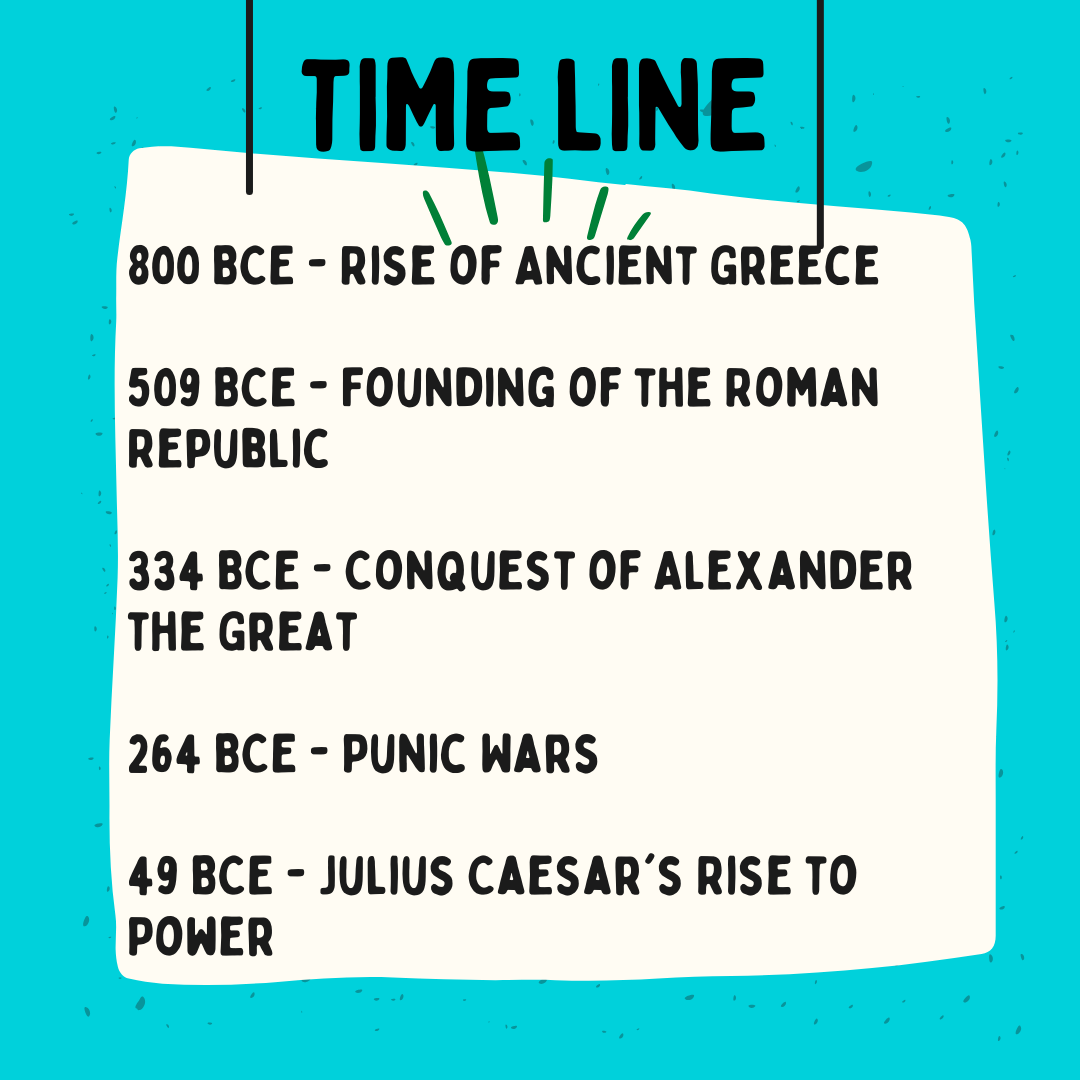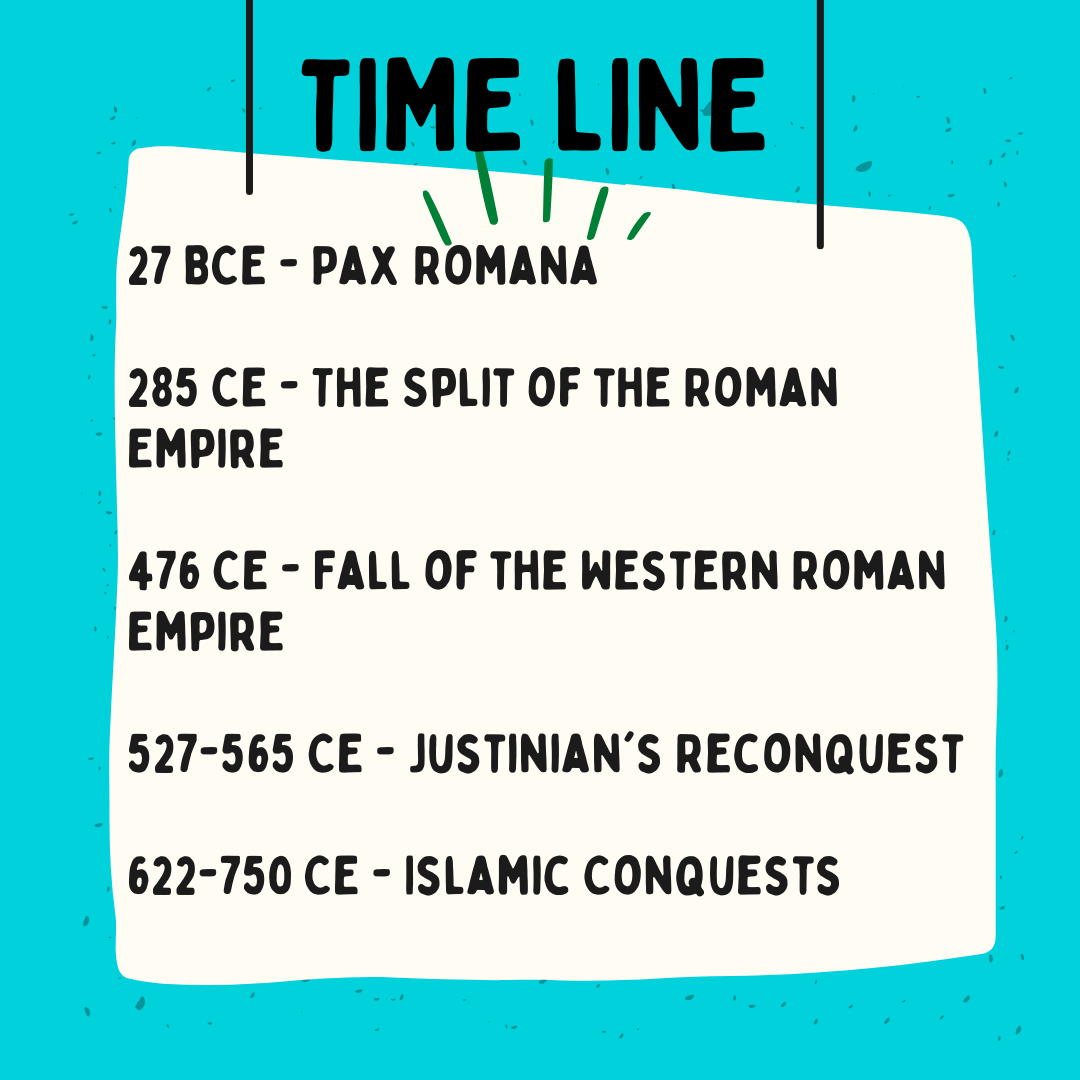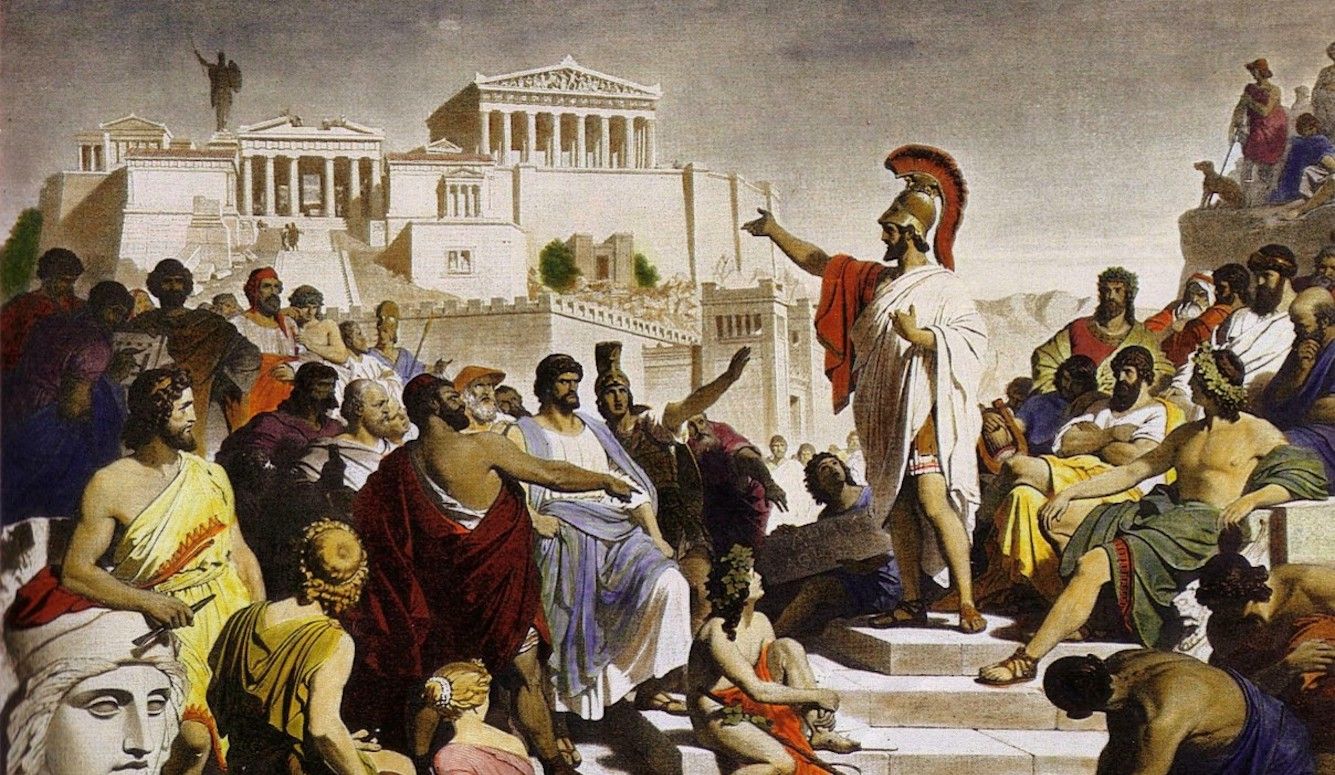Module One: How to Rule the World
Empires are majestic theatrics, mammoth creations born from human ambition and a dash of sheer lunacy. They rise, they tumble, and in between, they manage to botch things up in ways that'd make our current political circus seem like a tea party in comparison.
Let's kick off with the Akkadian Empire, shall we? This empire was founded by Sargon the Great and was a melting pot, mixing cultures before it was hip. They flexed their imperial muscles from Iraq to bits of Iran and Syria, spreading centralized governance like a nasty case of bureaucratic chickenpox. Sure, they brought a few administrative tricks to the table but also had a knack for wiping out local identities.
The Persian Empire was the old-school champion of tolerance and diversity. Under Cyrus the Great, they threw open their doors (and borders) to all and sundry, creating a colorful smorgasbord of languages, faiths, and folks. But let's pay attention to the fine print: imperial taxation and centralized control were the less-than-glamorous side dishes at this multicultural buffet. And boy, those subjects kick up a fuss now and then, like teenagers at a family reunion.
The Roman Empire—where do we even start? From conquering half the globe to engineering aqueducts that'd make your average plumber green with envy, they had it all. But behind the marble façades and flowing togas lay socioeconomic divides, forced labor, and the odd emperor with a deity complex. Pax Romana might sound like a spa retreat, but it came with a hefty price tag: autocratic rule and a strict "no dissenters" policy.
Last, the Byzantine Empire was the hipster heir to all the cool stuff from the Roman Empire's garage sale. They kept the torch burning for classical wisdom, acted as the final frontier against barbarian hordes, and threw some seriously swanky architectural shindigs. But like any good bash, it eventually got gate-crashed—by the Ottoman Turks, who swiftly turned the Hagia Sophia into a mosque.
So, what's the moral of this whirlwind empire escapade? Apart from history's one big tragicomedy, it's a reminder that behind every grand imperial front lies a messy snarl of power plays, culture clashes, and the odd invasion by folks wielding pointy objects. At least we scored some pretty sweet buildings out of the deal, right?
THE RUNDOWN
QUESTIONS
Let's kick off with the Akkadian Empire, shall we? This empire was founded by Sargon the Great and was a melting pot, mixing cultures before it was hip. They flexed their imperial muscles from Iraq to bits of Iran and Syria, spreading centralized governance like a nasty case of bureaucratic chickenpox. Sure, they brought a few administrative tricks to the table but also had a knack for wiping out local identities.
The Persian Empire was the old-school champion of tolerance and diversity. Under Cyrus the Great, they threw open their doors (and borders) to all and sundry, creating a colorful smorgasbord of languages, faiths, and folks. But let's pay attention to the fine print: imperial taxation and centralized control were the less-than-glamorous side dishes at this multicultural buffet. And boy, those subjects kick up a fuss now and then, like teenagers at a family reunion.
The Roman Empire—where do we even start? From conquering half the globe to engineering aqueducts that'd make your average plumber green with envy, they had it all. But behind the marble façades and flowing togas lay socioeconomic divides, forced labor, and the odd emperor with a deity complex. Pax Romana might sound like a spa retreat, but it came with a hefty price tag: autocratic rule and a strict "no dissenters" policy.
Last, the Byzantine Empire was the hipster heir to all the cool stuff from the Roman Empire's garage sale. They kept the torch burning for classical wisdom, acted as the final frontier against barbarian hordes, and threw some seriously swanky architectural shindigs. But like any good bash, it eventually got gate-crashed—by the Ottoman Turks, who swiftly turned the Hagia Sophia into a mosque.
So, what's the moral of this whirlwind empire escapade? Apart from history's one big tragicomedy, it's a reminder that behind every grand imperial front lies a messy snarl of power plays, culture clashes, and the odd invasion by folks wielding pointy objects. At least we scored some pretty sweet buildings out of the deal, right?
THE RUNDOWN
- The Akkadian Empire, led by Sargon the Great, was the first big empire and introduced new ways of running a government, but it also made some people lose their local cultures.
- The Persian Empire, with Cyrus the Great as its leader, let different cultures and religions exist together, but some people didn't like being ruled by them and sometimes rebelled.
- The Roman Empire, stretching from Britain to the Middle East, built lots of things like roads and laws that we still use today, but it also treated some people unfairly and fell apart eventually.
- The Byzantine Empire, which came after the Romans, kept old knowledge alive and made cool buildings like the Hagia Sophia, but it faced a lot of fighting and was eventually taken over by the Ottoman Turks.
- Learning about these old empires helps us understand how our world today was shaped by their ideas and actions.
- By knowing about the good and bad things these empires did, we can learn from their mistakes and make better decisions for our future.
QUESTIONS
- How did wars and takeovers change the ancient world? Did it make things better or worse for people living in those times?
- Think about how ancient empires handled money stuff like taxes and trading with other places. How did it help them stay strong, or did it make things fall apart?
- Talk about how people in ancient empires balanced keeping their old ways versus trying out new stuff from other places. How did it change their lives and their empires?
#1 Historians are Detective
In the intoxicating world of history, historians don the trench coat and fedora, becoming savvy detectives on a mission to unravel the enigmatic tales of our past. It's like being transported to a mysterious labyrinth, where they navigate through hidden truths and buried secrets to illuminate the triumphs and tragedies of human existence.
One of these history sleuths was Tom Reilly. He tackled the ambitious task of rehabilitating the controversial figure of Oliver Cromwell in Irish history. For a jaw-dropping three decades, he dedicated himself to cracking the code of historical records, driven by a burning desire to give Cromwell's reputation a makeover. Armed with primary sources and an insatiable thirst for the truth, Reilly dared to challenge the accepted narrative that painted Cromwell's troops as ruthless killers. Instead, he took a brave stand, insisting that the killings were confined to enemy combatants who'd thrown in the towel. Talk about being fearless in the face of historical hostility!
The meticulous work of historians like Reilly reveals that they aren't just archival keepers of the past but the guardians of truth. Through their relentless pursuit of accuracy, they unearth obscure stories and bring to light the complexities of our shared heritage. With their trusty magnifying glass, they meticulously evaluate sources, separating fact from fiction and leaving no historical stone unturned.
Think of the lessons we can learn from history's grand stage! It's like a dramatic performance from the past, and historians hold the script. They empower us to make informed choices for the present and future, as they remind us that the foundations of today rest on the triumphs and tribulations of yesteryears.
But this historical detective work is a collaborative endeavor. It's a delightful dance between historians and journalists, each bringing their unique skills. Just think of the notorious Watergate scandal; it's a classic tale of collaboration between historians and journalists, a thrilling performance that uncovered the dark secrets of political intrigue. Scholars of the past bring their specialized knowledge in deciphering historical events, whereas investigative journalists utilize their adeptness in finding hidden truths through the persistent pursuit of undisclosed informants and classified records.
Ultimately, these historians do not merely disentangle the enigmas of history; they intricately interlace the tapestry of our comprehension of the world. Their meticulous detective work gives us the tools to navigate the present and shape a brighter tomorrow. So let's raise a glass to the history sleuths, the custodians of truth, and the keepers of our shared heritage.
RUNDOWN
STATE OF THE WORLD
One of these history sleuths was Tom Reilly. He tackled the ambitious task of rehabilitating the controversial figure of Oliver Cromwell in Irish history. For a jaw-dropping three decades, he dedicated himself to cracking the code of historical records, driven by a burning desire to give Cromwell's reputation a makeover. Armed with primary sources and an insatiable thirst for the truth, Reilly dared to challenge the accepted narrative that painted Cromwell's troops as ruthless killers. Instead, he took a brave stand, insisting that the killings were confined to enemy combatants who'd thrown in the towel. Talk about being fearless in the face of historical hostility!
The meticulous work of historians like Reilly reveals that they aren't just archival keepers of the past but the guardians of truth. Through their relentless pursuit of accuracy, they unearth obscure stories and bring to light the complexities of our shared heritage. With their trusty magnifying glass, they meticulously evaluate sources, separating fact from fiction and leaving no historical stone unturned.
Think of the lessons we can learn from history's grand stage! It's like a dramatic performance from the past, and historians hold the script. They empower us to make informed choices for the present and future, as they remind us that the foundations of today rest on the triumphs and tribulations of yesteryears.
But this historical detective work is a collaborative endeavor. It's a delightful dance between historians and journalists, each bringing their unique skills. Just think of the notorious Watergate scandal; it's a classic tale of collaboration between historians and journalists, a thrilling performance that uncovered the dark secrets of political intrigue. Scholars of the past bring their specialized knowledge in deciphering historical events, whereas investigative journalists utilize their adeptness in finding hidden truths through the persistent pursuit of undisclosed informants and classified records.
Ultimately, these historians do not merely disentangle the enigmas of history; they intricately interlace the tapestry of our comprehension of the world. Their meticulous detective work gives us the tools to navigate the present and shape a brighter tomorrow. So let's raise a glass to the history sleuths, the custodians of truth, and the keepers of our shared heritage.
RUNDOWN
- Historians are like detectives; they use clues to understand past events and interpret findings to determine what happened.
- Irish historian Tom Reilly spent 30 years trying to rehabilitate Oliver Cromwell, a controversial figure in Irish history, by reviewing primary sources and establishing his "authentic voice."
- Reilly claims that Irish history books wrongly suggest that Cromwell's troops killed civilians while they only killed enemy combatants who had yielded.
- Historians are essential because they excavate hidden stories and understand the complexities of human experience, helping us to shape the future by learning from the past.
- Historians and detectives gather evidence to build a case, and historians must evaluate sources to ensure they are credible and relevant.
- Historians and journalists worked together to uncover the Watergate scandal in the 1970s, using confidential sources, government documents, and witness testimony to piece together a twisted tale of political intrigue.
STATE OF THE WORLD
3000 BCE, the Bronze Age—when humanity first flexed its intellectual muscles. From Mesopotamia's budding bureaucracy with the Code of Hammurabi to Egypt's grandiose pyramid-building obsession, people were finding ingenious ways to complicate their lives. Meanwhile, the Indus Valley pioneered urban planning with cleaner streets than today, China was dabbling in early agriculture, and the Olmecs were busy carving colossal stone heads in Mesoamerica. Europe was still figuring out Bronze Age basics while trade routes linked distant civilizations like a primitive Amazon Prime with higher banditry rates. Social hierarchies, slavery, and religion were also trending topics because what's a civilization without some forced labor and spiritual speculation? So, 3000 BCE was a blend of innovation, overcomplication, and timeless human quirks, from our love for bureaucracy and grandiosity to giant stone heads that still make us scratch our heads.
HIGHLIGHTS
We've got some fine classroom lectures coming your way, all courtesy of the RPTM podcast. These lectures will take you on a wild ride through history, exploring everything from ancient civilizations and epic battles to scientific breakthroughs and artistic revolutions. The podcast will guide you through each lecture with its no-nonsense, straight-talking style, using various sources to give you the lowdown on each topic. You won't find any fancy-pants jargon or convoluted theories here, just plain and straightforward explanations anyone can understand. So sit back and prepare to soak up some knowledge.
LECTURES
LECTURES
- UNDER CONSTRUCTION!
The Reading section—a realm where our aspirations of enlightenment often clash with the harsh realities of procrastination and the desperate reliance on Google. We soldier on through dense texts, promised 'broadening perspectives' but often wrestling with existential dread and academic pressure. With a healthy dose of sarcasm and a strong cup of coffee, I'll be your guide on this wild journey from dusty tomes to the murky depths of postmodernism. In the midst of all the pretentious prose, there's a glimmer of insight: we're all in this together, united in our struggle to survive without losing our sanity.
READING
This class utilizes the following textbook:
Sherman, Dennis, and Joyce Salisbury. The West in the World. 5th ed. McGraw Hill, 2013.
In the whirlwind of academia, where tweed jackets and discussions about the best coffee spot reign, Joyce Salisbury and Dennis Sherman stand out as the rebels of historical scholarship. Armed with Salisbury's Ph.D. in medieval history from Rutgers University and Sherman's academic journey from UC Berkeley to the University of Michigan, they challenge the conventional norms with their scholarly prowess and irreverent wit. Salisbury fearlessly delves into ancient violence with works like "The Blood of Martyrs" and uncovers forgotten tales of resilience in "The Encyclopedia of Women in the Ancient World." Meanwhile, Sherman, akin to an academic Indiana Jones, roams the globe contemplating French history in Parisian cafes and making history accessible with titles like "A Short History of Western Civilization." Together, they disrupt the ivory tower with their unapologetic approach and thirst for asking the tough questions.
As a dynamic duo, Salisbury and Sherman defy the stereotype of the stuffy historian. Their partnership merges Salisbury's pen, mightier than Excalibur itself, with Sherman's knack for weaving accessible narratives. They're not just scholars but cultural provocateurs challenging the status quo. So, here's to raising a glass (or a quill) to these academic renegades, who breathe life into the dusty corridors of historical scholarship with their relentless curiosity and scholarly swagger.
RUNDOWN
READING
- Chapter 1. The Roots of Western Civilization: The Ancient Middle East to the Sixth Century B.C.E.
This class utilizes the following textbook:
Sherman, Dennis, and Joyce Salisbury. The West in the World. 5th ed. McGraw Hill, 2013.
In the whirlwind of academia, where tweed jackets and discussions about the best coffee spot reign, Joyce Salisbury and Dennis Sherman stand out as the rebels of historical scholarship. Armed with Salisbury's Ph.D. in medieval history from Rutgers University and Sherman's academic journey from UC Berkeley to the University of Michigan, they challenge the conventional norms with their scholarly prowess and irreverent wit. Salisbury fearlessly delves into ancient violence with works like "The Blood of Martyrs" and uncovers forgotten tales of resilience in "The Encyclopedia of Women in the Ancient World." Meanwhile, Sherman, akin to an academic Indiana Jones, roams the globe contemplating French history in Parisian cafes and making history accessible with titles like "A Short History of Western Civilization." Together, they disrupt the ivory tower with their unapologetic approach and thirst for asking the tough questions.
As a dynamic duo, Salisbury and Sherman defy the stereotype of the stuffy historian. Their partnership merges Salisbury's pen, mightier than Excalibur itself, with Sherman's knack for weaving accessible narratives. They're not just scholars but cultural provocateurs challenging the status quo. So, here's to raising a glass (or a quill) to these academic renegades, who breathe life into the dusty corridors of historical scholarship with their relentless curiosity and scholarly swagger.
RUNDOWN
- Human history is like a big story full of fights, takeovers, and times when people question their existence.
- Long ago, in places like the Middle East, cities were busy hubs where trade, rulers being bossy, and thinking deeply about life all mixed together.
- Nowadays, we have cars and smartphones, but we still deal with the same big problems, like who gets to be in charge and how different cultures fit together.
- In the past, cool empires like the Persian Empire and the Greeks with their democracy existed. Greeks also had yummy gyros.
- When we look back, we see that our journey isn't straightforward. It's more like a repeating pattern of good things happening, then bad things, with some funny moments and times when we wonder about the meaning of life.
- Big questions like who has power, why we're here, and how individuals change society keep popping up throughout history.
Howard Zinn was a historian, writer, and political activist known for his critical analysis of American history. He is particularly well-known for his counter-narrative to traditional American history accounts and highlights marginalized groups' experiences and perspectives. Zinn's work is often associated with social history and is known for his Marxist and socialist views. Larry Schweikart is also a historian, but his work and perspective are often considered more conservative. Schweikart's work is often associated with military history, and he is known for his support of free-market economics and limited government. Overall, Zinn and Schweikart have different perspectives on various historical issues and events and may interpret historical events and phenomena differently. Occasionally, we will also look at Thaddeus Russell, a historian, author, and academic. Russell has written extensively on the history of social and cultural change, and his work focuses on how marginalized and oppressed groups have challenged and transformed mainstream culture. Russell is known for his unconventional and controversial ideas, and his work has been praised for its originality and provocative nature.
My classes utilize both Howard Zinn's A People's History of the United States and Larry Schweikart's Patriot's History of the United States, mostly in excerpts posted to the modules.
My classes utilize both Howard Zinn's A People's History of the United States and Larry Schweikart's Patriot's History of the United States, mostly in excerpts posted to the modules.

Zinn, A People's History of the United States
...Empire abroad requires repression at home. The history of the Roman Empire is a history of the repression of people at home in order to conquer people abroad. The history of the British Empire is a history of the suppression of people at home in order to conquer people abroad. The history of the United States is a history of the suppression of people at home in order to conquer people abroad....
"Empires, by their very nature, are based on exploitation and oppression. The Roman Empire was based on the exploitation of conquered peoples and the oppression of the poor. The British Empire was based on the exploitation of conquered peoples and the oppression of the poor. The United States, like all empires, has always been interested in its own expansion, its own profits, and therefore, in the suppression of independent movements elsewhere...
...The United States, like all empires, has always been interested in its own expansion, its own profits, and therefore, in the suppression of independent movements elsewhere. It is not only the Roman Empire, the British Empire, and the Spanish Empire that have been interested in this; it is the history of empires in general...
...Empire abroad requires repression at home. The history of the Roman Empire is a history of the repression of people at home in order to conquer people abroad. The history of the British Empire is a history of the suppression of people at home in order to conquer people abroad. The history of the United States is a history of the suppression of people at home in order to conquer people abroad....
"Empires, by their very nature, are based on exploitation and oppression. The Roman Empire was based on the exploitation of conquered peoples and the oppression of the poor. The British Empire was based on the exploitation of conquered peoples and the oppression of the poor. The United States, like all empires, has always been interested in its own expansion, its own profits, and therefore, in the suppression of independent movements elsewhere...
...The United States, like all empires, has always been interested in its own expansion, its own profits, and therefore, in the suppression of independent movements elsewhere. It is not only the Roman Empire, the British Empire, and the Spanish Empire that have been interested in this; it is the history of empires in general...

Larry Schweikart, A Patriot's History of the United States
..When celebrating triumphs—whether over inflation, interest rates, unemployment, or communism—Reagan used “we” or “together.” When calling on fellow citizens for support, he expressed his points in clear examples and heartwarming stories. An example, he said, was always better than a sermon. No matter what he or government did, to Reagan it was always the people of the nation who made the country grow and prosper. Most important, he did not hesitate to speak that he thought was the truth, calling the Soviet Union the “evil empire,” a term that immediately struck a note with millions of Star Wars fans and conjuring up the image of a decrepit Soviet leader as the “emperor” bent on destroying the Galactic Republic (America). Once, preparing to make a statement about the Soviet Union, Reagan did not realize a microphone was left on, and he joked to a friend, “The bombing begins in five minutes.” Horrified reporters scurried about in panic, certain that this gunslinger-cowboy president was serious...
...The “evil empire” speech paved the way for one of the most momentous events of the post–World War II era. On March 23, 1983, in a television address, after revealing previously classified photographs of new Soviet weapons and installations in Cuba, Nicaragua, and Grenada, and reviewing the Soviet advantage in heavy missiles, Reagan surprised even many of his supporters by calling for a massive national commitment to build a defense against ballistic missiles. He urged scientists and engineers to use any and all new technologies, including (but not limited to) laser beam weapons in space...
..When celebrating triumphs—whether over inflation, interest rates, unemployment, or communism—Reagan used “we” or “together.” When calling on fellow citizens for support, he expressed his points in clear examples and heartwarming stories. An example, he said, was always better than a sermon. No matter what he or government did, to Reagan it was always the people of the nation who made the country grow and prosper. Most important, he did not hesitate to speak that he thought was the truth, calling the Soviet Union the “evil empire,” a term that immediately struck a note with millions of Star Wars fans and conjuring up the image of a decrepit Soviet leader as the “emperor” bent on destroying the Galactic Republic (America). Once, preparing to make a statement about the Soviet Union, Reagan did not realize a microphone was left on, and he joked to a friend, “The bombing begins in five minutes.” Horrified reporters scurried about in panic, certain that this gunslinger-cowboy president was serious...
...The “evil empire” speech paved the way for one of the most momentous events of the post–World War II era. On March 23, 1983, in a television address, after revealing previously classified photographs of new Soviet weapons and installations in Cuba, Nicaragua, and Grenada, and reviewing the Soviet advantage in heavy missiles, Reagan surprised even many of his supporters by calling for a massive national commitment to build a defense against ballistic missiles. He urged scientists and engineers to use any and all new technologies, including (but not limited to) laser beam weapons in space...

Thaddeus Russell, A Renegade History of the United States
"...the fight that political philosophers have always identified as the central conflict in human history: that between the individual and society. Thus far, scholars have shown little interest in finding this conflict in American history...”
"...the fight that political philosophers have always identified as the central conflict in human history: that between the individual and society. Thus far, scholars have shown little interest in finding this conflict in American history...”
The sprawling kingdoms, where exploitation and oppression don fancy masks and waltz around as civilization's esteemed guests. Let's jaunt through the corridors of time, where these behemoths strutted, casting both marvels and monstrosities upon the stage of history.
Behold the Roman Empire, that ancient titan, with its conquering armies and grand marble edifices. Sure, they gifted us with aqueducts and baths, but let's not gloss over the fact that they erected these marvels on the backs of slaves and the bones of conquered lands. It's akin to admiring a majestic mansion while conveniently ignoring the unseen laborers toiling away in the cellar.
Then there's the British Empire, the perpetual sun of exploitation. From tea in India to sugar in the Caribbean, Britannia ruled the seas with an iron fist and a fondness for looting. While they left cricket and the Queen's English behind, they also left deep scars of cultural erasure and economic ruin in their wake.
And who could overlook Uncle Sam, America the Mighty, land of the free and playground of imperialists? Manifest Destiny wasn't merely a catchy slogan; it was a carte blanche for land grabs and ethnic cleansing, all in the pursuit of westward expansion. And let's not forget America's knack for regime changes, exporting democracy with the subtlety of a sledgehammer while conveniently neglecting to ask the locals for their opinion.
It's not all misery and woe. Empires did toss us a few treats, like legal systems and cultural fusions. It's akin to discovering a handful of coins amidst a dumpster fire; sure, it's something, but it hardly masks the stench of burning refuse.
So, what's the moral of this whirlwind tour through the annals of history? It's that power tends to corrupt, empires inevitably crumble, and the lessons of yore are as uncomfortable as they are indispensable. Because until we squarely face the darker chapters of our shared narrative, we're condemned to relive them. And honestly, who wants an encore of that calamity?
THE RUNDOWN
QUESTIONS
Behold the Roman Empire, that ancient titan, with its conquering armies and grand marble edifices. Sure, they gifted us with aqueducts and baths, but let's not gloss over the fact that they erected these marvels on the backs of slaves and the bones of conquered lands. It's akin to admiring a majestic mansion while conveniently ignoring the unseen laborers toiling away in the cellar.
Then there's the British Empire, the perpetual sun of exploitation. From tea in India to sugar in the Caribbean, Britannia ruled the seas with an iron fist and a fondness for looting. While they left cricket and the Queen's English behind, they also left deep scars of cultural erasure and economic ruin in their wake.
And who could overlook Uncle Sam, America the Mighty, land of the free and playground of imperialists? Manifest Destiny wasn't merely a catchy slogan; it was a carte blanche for land grabs and ethnic cleansing, all in the pursuit of westward expansion. And let's not forget America's knack for regime changes, exporting democracy with the subtlety of a sledgehammer while conveniently neglecting to ask the locals for their opinion.
It's not all misery and woe. Empires did toss us a few treats, like legal systems and cultural fusions. It's akin to discovering a handful of coins amidst a dumpster fire; sure, it's something, but it hardly masks the stench of burning refuse.
So, what's the moral of this whirlwind tour through the annals of history? It's that power tends to corrupt, empires inevitably crumble, and the lessons of yore are as uncomfortable as they are indispensable. Because until we squarely face the darker chapters of our shared narrative, we're condemned to relive them. And honestly, who wants an encore of that calamity?
THE RUNDOWN
- Empires like the Romans and the British did extraordinary things, but they also hurt a lot of people by enslaving them and taking their stuff.
- The British Empire was like a big bully, taking things like tea and sugar from other countries and leaving them worse.
- America, too, did some not-so-great stuff, like taking land from Native Americans and messing with other countries' governments.
- But it's not all bad—empires also gave us some good things, like laws and the mixing of different cultures.
- The important lesson here is that when people have too much power, they often do bad things, and if we don't learn from history, we're bound to repeat it.
- So, let's remember the good and the bad and try to make the world better by learning from our mistakes.
QUESTIONS
- How did empires such as the Romans and the British contribute to both progress and harm in the world?
- In what ways did the British Empire impact the cultures and economies of the regions it colonized?
- What were some of the negative consequences of America's expansion and interventionist policies on indigenous peoples and other nations?
Prepare to be transported into the captivating realm of historical films and videos. Brace yourselves for a mind-bending odyssey through time as we embark on a cinematic expedition. Within these flickering frames, the past morphs into a vivid tapestry of triumphs, tragedies, and transformative moments that have shaped the very fabric of our existence. We shall immerse ourselves in a whirlwind of visual narratives, dissecting the nuances of artistic interpretations, examining the storytelling techniques, and voraciously devouring historical accuracy with the ferocity of a time-traveling historian. So strap in, hold tight, and prepare to have your perception of history forever shattered by the mesmerizing lens of the camera.
Click to set custom HTML
THE RUNDOWN
The legendary era of Ancient Greece, where thinkers were as common as olives on a Greek salad. Picture being torn between sailing off to battle on a trireme or pondering life's mysteries in a stylish toga. From Themistocles, the Athenian sea captain who defeated the Persians only to be booted out for dreaming big, to the Mycenaeans, the ancient world's tech wizards with architectural marvels like the Lion's Gate, they were the trailblazers of their time. Let's not forget the myths that shaped Greek culture, turning epic tales like the Trojan War and The Odyssey into the blockbusters of their day.
Then Athens burst onto the scene. Pericles gifted us the Parthenon, Athens' gleaming marble symbol of prestige, though it came with a hefty price tag. Despite Athens' ups and downs, from losing the Peloponnesian War to Sparta to its eventual decline, Greek culture's impact endured. Figures like Philip II and Alexander the Great spread Greek ideals far and wide, influencing everything from Renaissance art to modern politics. Today, we're still grappling with their enduring questions about life, ambition, and the eternal debate: who thought olives were the perfect topping? At least we've got democracy – flawed, perhaps, but far better than the alternatives.
The legendary era of Ancient Greece, where thinkers were as common as olives on a Greek salad. Picture being torn between sailing off to battle on a trireme or pondering life's mysteries in a stylish toga. From Themistocles, the Athenian sea captain who defeated the Persians only to be booted out for dreaming big, to the Mycenaeans, the ancient world's tech wizards with architectural marvels like the Lion's Gate, they were the trailblazers of their time. Let's not forget the myths that shaped Greek culture, turning epic tales like the Trojan War and The Odyssey into the blockbusters of their day.
Then Athens burst onto the scene. Pericles gifted us the Parthenon, Athens' gleaming marble symbol of prestige, though it came with a hefty price tag. Despite Athens' ups and downs, from losing the Peloponnesian War to Sparta to its eventual decline, Greek culture's impact endured. Figures like Philip II and Alexander the Great spread Greek ideals far and wide, influencing everything from Renaissance art to modern politics. Today, we're still grappling with their enduring questions about life, ambition, and the eternal debate: who thought olives were the perfect topping? At least we've got democracy – flawed, perhaps, but far better than the alternatives.
Welcome to the mind-bending Key Terms extravaganza of our history class learning module. Brace yourselves; we will unravel the cryptic codes, secret handshakes, and linguistic labyrinths that make up the twisted tapestry of historical knowledge. These key terms are the Rosetta Stones of our academic journey, the skeleton keys to unlocking the enigmatic doors of comprehension. They're like historical Swiss Army knives, equipped with blades of definition and corkscrews of contextual examples, ready to pierce through the fog of confusion and liberate your intellectual curiosity. By harnessing the power of these mighty key terms, you'll possess the superhuman ability to traverse the treacherous terrains of primary sources, surf the tumultuous waves of academic texts, and engage in epic battles of historical debate. The past awaits, and the key terms are keys to unlocking its dazzling secrets.
KEY TERMS
KEY TERMS
- 3100 BCE - Ancient Egypt
- 1600 BCE - Hittite Empire
- 800 BCE - Ancient Greece
- 650 BCE - Carthaginian Empire
- 550 BCE - Persian Empire
- 336 BCE - Kingdom of Macedonia
- 27 BCE - Roman Empire
- 330 CE - Byzantine Empire
- 481 CE - Kingdom of France
- 718 CE - Kingdom of Spain
- 843 CE - Kingdom of Scotland
- 872 CE - Kingdom of Norway
- 936 CE - Kingdom of Denmark
- 962 CE - Holy Roman Empire
- 966 CE - Kingdom of Poland
- 970 CE - Kingdom of Sweden
- 1000 CE - Kingdom of Hungary
- 1139 CE - Kingdom of Portugal
- 1299 CE - Ottoman Empire
DISCLAIMER: Welcome scholars to the wild and wacky world of history class. This isn't your granddaddy's boring ol' lecture, baby. We will take a trip through time, which will be one wild ride. I know some of you are in a brick-and-mortar setting, while others are in the vast digital wasteland. But fear not; we're all in this together. Online students might miss out on some in-person interaction, but you can still join in on the fun. This little shindig aims to get you all engaged with the course material and understand how past societies have shaped the world we know today. We'll talk about revolutions, wars, and other crazy stuff. So get ready, kids, because it's going to be one heck of a trip. And for all, you online students out there, don't be shy. Please share your thoughts and ideas with the rest of us. The Professor will do his best to give everyone an equal opportunity to learn, so don't hold back. So, let's do this thing!
Activity #1: Western Civilization Text Adventure
Objective: Navigate through ancient Western civilizations before 1500 CE by making choices that lead you on a historical adventure.
Activity #1: Western Civilization Text Adventure
Objective: Navigate through ancient Western civilizations before 1500 CE by making choices that lead you on a historical adventure.
Western Civilization Text Adventure
Welcome to the world of ancient empires! Choose your path wisely to navigate through history.
You are a young adventurer in ancient Rome. You find yourself in the bustling city streets.
Activity #2: Western Civilization Empires Word Guessing Game
Objective: Guess the names of Western Civilization empires before 1500 CE based on the clues provided by entering single letters as your guesses
Western Civilization Empires Word Guessing Game
Clue:
Ladies and gentlemen, gather 'round for the pièce de résistance of this classroom module - the summary section. As we embark on this tantalizing journey, we'll savor the exquisite flavors of knowledge, highlighting the fundamental ingredients and spices that have seasoned our minds throughout these captivating lessons. Prepare to indulge in a savory recap that will leave your intellectual taste buds tingling, serving as a passport to further enlightenment.
The epic saga of empires is a timeless tale filled with more twists and turns than a soap opera marathon. Picture it: emperors strutting onto the scene like they own the joint, leaving chaos and conquest in their wake. It's like watching a bunch of power-hungry toddlers play with building blocks, except these blocks are entire civilizations.
First up, we've got Sargon the Great, the empire-builder extraordinaire. He waltzed onto the scene like he owned the place, checking off boxes on his despotism checklist like a pro. Who needs diversity when you've got absolute power, right? Spoiler alert: Sargon wasn't big on diversity.
Then there's Cyrus the Great, the poster child for being decent in a sea of tyrants. He was about tolerance and multiculturalism, handing out freedoms like they were going out of style. But even he couldn't stop rebellions from popping up like daisies in spring. It turns out that people love to stir the pot, no matter how enlightened you are.
Next on the docket are the Romans, masters of infrastructure and oppression. They built fancy roads and aqueducts, sure, but at what cost? Hint: it involved a lot of slave labor and keeping the rich rich while the poor suffered. Classic empire stuff.
And who could forget Byzantium, the little empire that could? They held it together for over a millennium like a prom dress held up with duct tape. Impressive, sure, but they had more drama than a reality TV show. Power struggles, invasions, economic meltdowns—you name it, they faced it.
So, what's the lesson here? Besides the evident "power corrupts" mantra, these empires are cautionary tales wrapped in gold leaf. They remind us of humanity's highs and lows, from our capacity for innovation to our insatiable thirst for domination. And as we navigate the modern world, let's remember the lessons of the past. After all, who wants to repeat history's greatest hits?
Or, in other words:
First up, we've got Sargon the Great, the empire-builder extraordinaire. He waltzed onto the scene like he owned the place, checking off boxes on his despotism checklist like a pro. Who needs diversity when you've got absolute power, right? Spoiler alert: Sargon wasn't big on diversity.
Then there's Cyrus the Great, the poster child for being decent in a sea of tyrants. He was about tolerance and multiculturalism, handing out freedoms like they were going out of style. But even he couldn't stop rebellions from popping up like daisies in spring. It turns out that people love to stir the pot, no matter how enlightened you are.
Next on the docket are the Romans, masters of infrastructure and oppression. They built fancy roads and aqueducts, sure, but at what cost? Hint: it involved a lot of slave labor and keeping the rich rich while the poor suffered. Classic empire stuff.
And who could forget Byzantium, the little empire that could? They held it together for over a millennium like a prom dress held up with duct tape. Impressive, sure, but they had more drama than a reality TV show. Power struggles, invasions, economic meltdowns—you name it, they faced it.
So, what's the lesson here? Besides the evident "power corrupts" mantra, these empires are cautionary tales wrapped in gold leaf. They remind us of humanity's highs and lows, from our capacity for innovation to our insatiable thirst for domination. And as we navigate the modern world, let's remember the lessons of the past. After all, who wants to repeat history's greatest hits?
Or, in other words:
- Ancient empires like the Akkadians, Persians, Romans, and Byzantines shaped our world with new ideas and big buildings.
- Akkadian rulers, led by Sargon the Great, made strong laws but sometimes forgot to respect local cultures.
- Cyrus the Great’s Persian Empire was cool with different religions and cultures, but people still rebelled sometimes.
- Romans built roads and laws that we still use today, but they also did bad things like slavery and fighting.
- Byzantine Empire lasted a long time and saved old knowledge, but it got taken over by the Ottoman Turks in the end
- Learning about these empires helps us understand how the world works and how we can make it better today.
ASSIGNMENTS
Remember all assignments, tests and quizzes must be submitted official via BLACKBOARD
Forum Discussion #01
- Forum Discussion #1
- Forum Discussion #2
Remember all assignments, tests and quizzes must be submitted official via BLACKBOARD
Forum Discussion #01
This first week I would like to take it easy, and get to know you better, please answer the following question with a one paragraph minimum:
What do you like about studying history? If you don't like history, what do you think the root cause is? Remember that you will be required to reply to at least two of your classmates.
Forum Discussion #2
The Infographics Show YouTube channel offers visually engaging videos that simplify complex topics using animations, graphics, and narration.Watch the following video:
What do you like about studying history? If you don't like history, what do you think the root cause is? Remember that you will be required to reply to at least two of your classmates.
Forum Discussion #2
The Infographics Show YouTube channel offers visually engaging videos that simplify complex topics using animations, graphics, and narration.Watch the following video:
Considering the transition from hunter-gatherer societies to early civilizations, what do you think were the most important factors that led to this change? Discuss the role of agriculture, trade, and religion in shaping early human communities. Can you see any parallels between these ancient developments and modern society? Share your thoughts and examples.
Need help? Remember the Discussion Board Rubric.
THE RUNDOWN
Humanity's wild journey—a mix of ambition, ingenuity, and a celestial touch. Imagine Prometheus, bound to share fire, the ultimate BBQ starter kit. Fast forward to decoding ancient messages like a devilish crossword—ancient emojis, anyone? Then there's trade, our first networking mixers, with merchants like the "Bronze Age Metal Maestro" sealing deals. The Neolithic Revolution? A shift from hunting to farming, squabbles over wheat loaves included. Religion? The first trendsetter, with sacrifices and clergy as the first influencers. And here we are, still moved by need, persuasion, and a sprinkle of trepidation. From Prometheus to now, it's been a whirlwind of highs, lows, and eyebrow-raising moments. At least we've got wheat.
Hey, welcome to the work cited section! Here's where you'll find all the heavy hitters that inspired the content you've just consumed. Some might think citations are as dull as unbuttered toast, but nothing gets my intellectual juices flowing like a good reference list. Don't get me wrong, just because we've cited a source; doesn't mean we're always going to see eye-to-eye. But that's the beauty of it - it's up to you to chew on the material and come to conclusions. Listen, we've gone to great lengths to ensure these citations are accurate, but let's face it, we're all human. So, give us a holler if you notice any mistakes or suggest more sources. We're always looking to up our game. Ultimately, it's all about pursuing knowledge and truth.
Work Cited:
Work Cited:
- UNDER CONSTRUCTION
- (Disclaimer: This is not professional or legal advice. If it were, the article would be followed with an invoice. Do not expect to win any social media arguments by hyperlinking my articles. Chances are, we are both wrong).
- (Trigger Warning: This article or section, or pages it links to, contains antiquated language or disturbing images which may be triggering to some.)
- (Permission to reprint this blog post in whole or in part is granted, provided that the author (or authors) and www.ryanglancaster.com are appropriately cited.)
- This site is for educational purposes only.
- Disclaimer: This learning module was primarily created by the professor with the assistance of AI technology. While every effort has been made to ensure the accuracy and reliability of the information presented, please note that the AI's contribution was limited to some regions of the module. The professor takes full responsibility for the content of this module and any errors or omissions therein. This module is intended for educational purposes only and should not be used as a substitute for professional advice or consultation. The professor and AI cannot be held responsible for any consequences arising from using this module.
- Fair Use: Copyright Disclaimer under section 107 of the Copyright Act of 1976, allowance is made for “fair use” for purposes such as criticism, comment, news reporting, teaching, scholarship, education, and research. Fair use is permitted by copyright statute that might otherwise be infringing.
- Fair Use Definition: Fair use is a doctrine in United States copyright law that allows limited use of copyrighted material without requiring permission from the rights holders, such as commentary, criticism, news reporting, research, teaching, or scholarship. It provides for the legal, non-licensed citation or incorporation of copyrighted material in another author’s work under a four-factor balancing test.


















